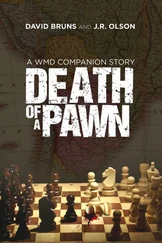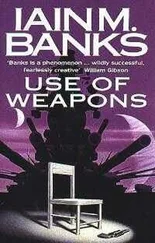He checked his watch: 1045. He needed to get ready for lunch with Vice Admiral Jake Abrahamson, the Naval Academy Superintendent, in a few minutes. Keeping close ties with the institution on the other side of the Severn River was key to his plan: the Naval Academy sailing team fleet was the perfect way to launder the sales of any future yacht purchases he’d need for his fleet of surveillance boats.
Jake Abrahamson knew what side his budget bread was buttered on. Rick’s plan — if it worked — was a boon to the activities funding for the rest of his term at the Academy. Jake was a shrewd operator, and he stayed close as Rick pitched his yacht surveillance project up the intelligence community chain of command. He’d been present when Rick secured about half of the “black” funding needed for the refit of the boat that stood before him now.
Rick tugged the coveralls higher on his waist. “Alright, Master Chief, let’s see how much of this we can get done before I have to break for lunch with the Supe.”
Master Chief O’Brien muttered something into his pipe about officers and working half-days, but Rick’s attention was drawn to a figure running in their direction. Lieutenant Michelle Malveaux puffed to a halt in front of Rick. The collar of her working khakis was rimmed with sweat and her face was beet red. Master Chief O’Brien’s bushy eyebrows angled toward her heaving bosom.
“Sir,” she gasped. “They’re on their way.”
Rick frowned. “The Supe’s early? We were on for noon—”
“It’s not just Admiral Abrahamson, sir, he’s got two others with him: OPNAV N2/N6 and the CO of ONI. I got a call from the Supe’s secretary, they’re on their way now.”
Rick swore under his breath. An ambush? Abrahamson was an experienced bureaucracy guerrilla, maybe he was the culprit. He knew Rear Admiral Cork, the head of the Office of Naval Intelligence. Cork was the one who’d given them the funding for the refit, and he seemed supportive, but Rick was not good at the Beltway shuffle. Maybe giving him half funding and letting him fail was Cork’s way of telling him no without saying it.
He took a deep breath. “Alright, Michelle, let’s get lunch moved up and staged in the conference room. I’m going to need the latest program overview and funding proposal — the one I used at ONI — up on the projector. Lots of Diet Cokes, that’s the only thing the Supe drinks and he likes ’em nice and cold.” Malveaux nodded once and hustled off.
Rick turned to O’Brien. “Master Chief, I need—”
“One inspection coming right up, skipper.” The old man stuffed his pipe into his pocket.
Rick took his time walking back to the office. He had fifteen, maybe twenty minutes if traffic was bad; no sense in getting all sweaty, and he needed to think this through.
Maybe he’d judged Abrahamson and Cork too harshly. Maybe this was OPNAV’s doing. Vice Admiral Jack Daugherty had gotten his third star and the OPNAV N2/N6 job about six months ago, about the same time Rick had met with Cork for his program funding. Daugherty had a reputation as a no-nonsense kind of guy with a big job to do — maybe an impossible job.
Working for the Secretaries of the Navy and Defense, Daugherty was charged with merging all the information-related fields of the US Navy into a single Information Dominance Corps, or IDC. The very size of the task made Rick’s head hurt. Cryptology, meteorology, computer networking, oceanography — any data stream now fell under his purview. Daugherty was the test case for the rest of the services. If he succeeded, they would all go the same route.
Rick reached his office and stripped off the coveralls, leaving them in a heap on the bathroom floor. He splashed water on his face and inspected his reflection in the mirror. He could use a haircut, but no time for that now. He automatically reached for the shaving cream and lathered his face, still thinking through the problem.
So he had a go-getter admiral with a huge job and little margin for error. His budget was probably underfunded and he was being picked apart by the Washington bureaucrats, so he needed money and a winning program that gave him new data streams for the IDC.
Rick dried his face and settled his uniform shirt over his shoulders. He pulled a tight tuck on his khaki uniform shirt and aligned the seam of the shirt with his belt buckle.
He opened the door from his office into the conference room just as the three men were being led in by Malveaux. Rick surveyed the scene. Abrahamson had a hangdog look on his face and shot Rick a glance that said “I’m sorry.” Rear Admiral Cork’s lips were pressed together in a thin line of white flesh, but the rest of his face was flushed. Clearly a man who was holding his tongue. From the looks of the two men that he knew, Rick guessed the car ride across the river had been less than pleasant.
Vice Admiral Jack Daugherty looked young for a three-star, closer to Rick’s age than either of the other two men. His close-cropped brown hair was only lightly peppered with gray, and the chest of his uniform shirt was a wall of ribbons over the round OPNAV emblem that covered his breast pocket.
Rick stuck out his hand to Daugherty. “Rick Baxter, Admiral. It’s a pleasure to meet you, sir.” Normally, this was the part in the conversation where the senior officer took the meeting formality down a notch with something like, “Call me Jack.”
The eyes that met Rick’s were blue, steely, and cold. “Likewise, Captain.” He took the seat at the head of the table. Rick hastily shook hands with Cork and Abrahamson, receiving another apologetic look from the Supe, before he made his way to the front of the room. While the projector warmed up, Lieutenant Malveaux placed a tray of sandwiches on the table and a silver tureen filled with ice and Diet Cokes. The Supe pulled a soda from the pile.
Daugherty waved at the sandwiches. “Captain, I’m not here for the food, I’m here to defund your silly sailboat project. You have fifteen minutes to convince me why I shouldn’t.”
Abrahamson did not open the soda. The silver can sweated onto the table.
Rick gulped. This was worse than he’d thought, the man had already made up his mind. He flashed up a cross-section of the Naval Academy yawl, the cabin packed with electronics.
“The program is tentatively called ‘Feisty Minnow’ and is modeled after the Soviet AGI program from the Cold War, when the Soviets disguised surveillance boats as fishing vessels and stationed them outside ports such as—”
“I’m familiar with the Soviet AGI program, Captain. Move on.”
“Yes, sir, I’m sure you are, but there’s a big difference here. The Soviets made no attempt to hide the fact that their AGIs were surveillance vessels. The ships had every radio antennae known to man on them, and some didn’t even have fishing gear. We’ve taken the opposite approach. The provenance of every boat is clean and crewed with a mix of sexes posing as rich dilettantes. All of the electronics and the antennae are hidden.” He showed schematics and 3-D mockups of the cabin with electronics stowed and then opened.
Daugherty chewed his lip. Rick took that as a good sign.
“Through the use of fuel cells, the latest DARPA is willing to allow us to use, we were able to reclaim the space normally used for fuel tanks as additional space for electronics—”
“What about data streams?” the admiral interrupted him again. “What can you give me that I can’t get elsewhere?”
Rick pulled up the slide that showed the signal-gathering capability. The admiral made a note in his steno book. “I can send your office a copy of these slides, sir,” Rick said.
Daugherty stared at the screen for a second and nodded absently. “Continue, Captain.”
Читать дальше












